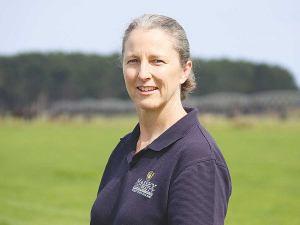Massey University is cashing in on the fact that most farmers need to have farm environment plans by 2025 as part of the Government’s new freshwater regulations.
Massey’s Environmental Group is busy designing and planning to run a series of special short courses in the New Year to inform rural professionals about the specific requirements of these plans.
Senior researcher Dr Lucy Burkitt says two types of course are planned. One is what she calls an ‘intermediate level’ course and the other is an ‘advanced’ one. Burkitt says they are currently piloting the intermediate course, which has a small group of rural professionals on it and they will be looking for feedback from them.
“The objectives of the intermediate course is to get students familiar with all the aspects and issues they need to understand to develop a farm environment plan,” Burkitt told Rural News.
“This is about the importance of soil types and how they can influence both erosion and sediment loss, as well as understanding critical source areas of farms and understanding the importance of land management units and inputting that information into Overseer.”
Burkitt says the intermediate course will be online and last for about 12 weeks. She says while the students won’t get out on a farm, digital resources will enable students to get a really good sense of what a farm is like. Given this, they then have to construct a farm environment plan.
However, Burkitt is quick to add that completion of this course will not be enough for person to go out and prepare a farm environment plan for a client. She says they will need additional experience and the help of a good mentor before they are qualified to do this.
“We are expecting a range of people who will be interested and who are already working in the agricultural area as consultants, but not necessarily in the farm environment space. We have all sorts of inquiries from people who might work in the wider agribusiness space including finance and banking who want to get a better understanding about the new requirements,” she says.
Burkitt says farm environment plans require a multi-disciplinary approach and lot of experience in the field working with farmers. She says even those who do the advanced course will need further help from a mentor to reach the skill level required to produce such a plan. The advanced course will be based at Massey and will involve students going out onto three different farm types – dairy, sheep and beef and arable.
“Students will be on the ground with the farmer identifying all the aspect that will be important for a farm environment plan and will then be tasked with developing three different environment plans which will be assessed.”
Burkitt says the farm environment plans are important documents for farmers and these will be accredited, which is part of the RMA requirement.
“Farm environment planners themselves will need to be accredited, so there will be quite high expectations placed on them.”
The courses will get underway early in the New Year and it will cost students $2,250 plus GST for the intermediate course and $3,000 plus GST for the advance course.



















